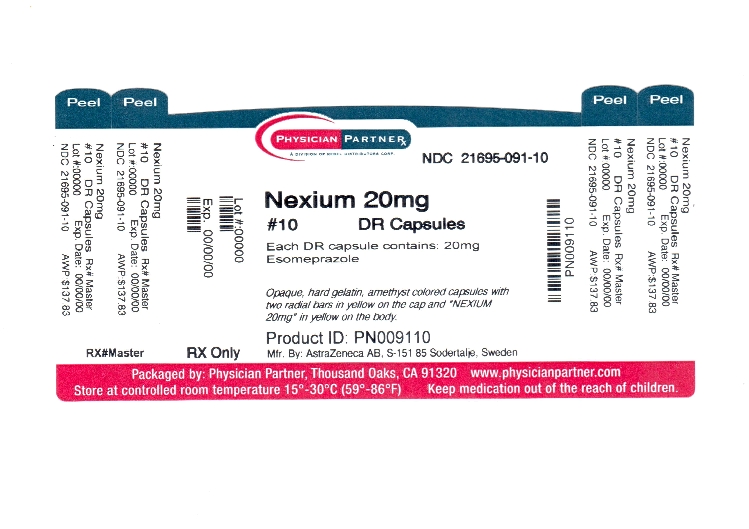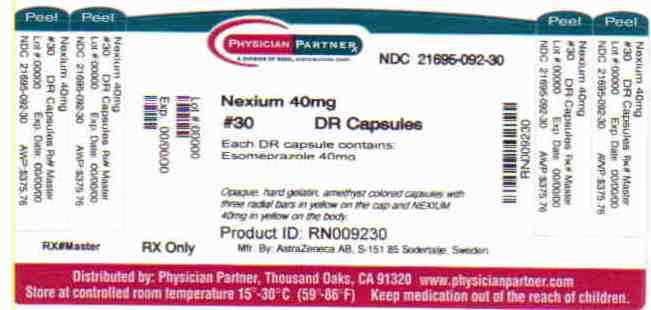Nexium | Esomeprazole Magnesium Capsule, Delayed Release while Breastfeeding

What is Nexium | Esomeprazole Magnesium Capsule, Delayed Release used for?
Is Nexium | Esomeprazole Magnesium Capsule, Delayed Release safe to use while breastfeeding? Can it interfere with growth and development of my kid?

8.3 Nursing Mothers Omeprazole concentrations have been measured in breast milk of one woman taking omeprazole 20 mg per day. However, the excretion of esomeprazole in milk has not been studied. It is not known whether this drug is excreted in human milk. Because many drugs are excreted in human milk and because of the potential for tumorigenicity shown for NEXIUM in rat carcinogenicity studies, a decision should be made whether to discontinue nursing or to discontinue the drug, taking into account the importance of the drug to the mother.
Nexium | Esomeprazole Magnesium Capsule, Delayed Release Breastfeeding Analsys
Esomeprazole while Breastfeeding
SafeCAS Number: 119141-88-7
S-Enantiomer of Omeprazole with which shares similar characteristics. Due to a high serum-protein-binding capacity, Omeprazole is excreted into breast milk in non-significant amount without side-effects among breastfed infants from treated mothers. Since it's neutralized by the acid pH of stomach, capsules with enteric coated granules are used. Because of this, it is thought that the small quantity of Omeprazole that may reach the breast milk would be neutralized by infant's stomach. In addition, absorption is greatly decreased by the presence of food. Esomeprazole has been used for treatment of newborn and premature infants. Hyperprolactinemia and galactorrhea have been reported by the use of Omeprazole.
Nexium | Esomeprazole Magnesium Capsule, Delayed Release Breastfeeding Analsys - 2
Esomeprazole while Breastfeeding
CAS Number: 119141-88-7
Esomeprazole is the -enantiomer of the proton-pump inhibitor, omeprazole. Limited information indicates that maternal doses of 20 mg daily produce low levels in milk and would not be expected to cause any adverse effects in breastfed infants.

I am nursing mother and I have already used Nexium | Esomeprazole Magnesium Capsule, Delayed Release, what should I do?
It is always a good idea to keep your healthcare provider or doctor informed about your drug usage during pregnancy and breastfeeding but if you have not informed your doctor about Nexium | Esomeprazole Magnesium Capsule, Delayed Release and have used it then do not panic as Nexium | Esomeprazole Magnesium Capsule, Delayed Release is mostly safe in breastfeeding and should not cause any harm to your baby.
My health care provider has asked me to use Nexium | Esomeprazole Magnesium Capsule, Delayed Release, what to do?
Usage of Nexium | Esomeprazole Magnesium Capsule, Delayed Release is safe for nursing mothers and baby, No worries.
If I am using Nexium | Esomeprazole Magnesium Capsule, Delayed Release, will my baby need extra monitoring?
No
Who can I talk to if I have questions about usage of Nexium | Esomeprazole Magnesium Capsule, Delayed Release in breastfeeding?
US
National Womens Health and Breastfeeding Helpline: 800-994-9662 (TDD 888-220-5446) 9 a.m. and 6 p.m. ET, Monday through Friday
UK
National Breastfeeding Helpline: 0300-100-0212 9.30am to 9.30pm, daily
Association of Breastfeeding Mothers: 0300-330-5453
La Leche League: 0345-120-2918
The Breastfeeding Network supporter line in Bengali and Sylheti: 0300-456-2421
National Childbirth Trust (NCT): 0300-330-0700
Australia
National Breastfeeding Helpline: 1800-686-268 24 hours a day, 7 days a week
Canada
Telehealth Ontario for breastfeeding: 1-866-797-0000 24 hours a day, 7 days a week
